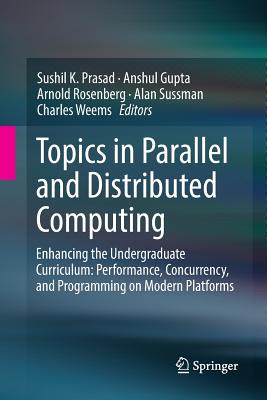Programming Languages And Paradigms
暫譯: 程式語言與範式
James B. Fenwick
- 出版商: Jones and Bartlett
- 出版日期: 2021-01-16
- 售價: $3,210
- 語言: 英文
- 頁數: 640
- 裝訂: Hardcover
- ISBN: 1449652301
- ISBN-13: 9781449652302
無法訂購
商品描述
Designed for courses in Computer Science or Computer Engineering, this comprehensive text introduces students to the primary constructs of contemporary programming language concepts and provides them with the tools necessary to critically analyze and assess existing and future programming languages. Programming Languages and Paradigms covers the four major programming paradigms as outlined in the ACM/IEEE Computer Science curriculum guidelines (imperative, functional, logical, and object-oriented) and presents each paradigm within two chapters. The first chapter covers the paradigm’s focus language in detail and then investigates how this language answers the eight fundamental questions of language design. The second chapter provides a detailed treatment of the language’s more advanced features and further includes coverage of other well-known languages of the paradigm. Most chapters end with a case study that provides students with a larger application to be solved using the target language for the paradigm. The organization of Programming Languages and Paradigms provides students with a good balance between practical, hands-on programming experience in the paradigm and the design issues associated with the paradigm, providing them with a solid foundation for understanding the fundamental concepts of programming languages. Key Features: • Covers the four major programming paradigms as outlined in the ACM/IEEE CS curriculum guidelines: imperative; functional; logical; and object-oriented. • Provides hands-on programming experience in each of the paradigms covered and utilizes a different target language for each: C for imperative, F# for functional, Prolog for logical, and C# for object-oriented. • Illustrates and discusses concurrency for each of the target languages at the time the language is introduced, enabling students to see a variety of mechanisms for implementing concurrency throughout the text. • Provides case studies that allow the student to solve complex problems in each paradigm. • Provides enrichment materials at the end of the book that introduce the Scala multi-paradigm programming language; tools for parallel computations such as OpenMP, MPI, and OpenCL; and programming language semantics.
商品描述(中文翻譯)
本書專為計算機科學或計算機工程課程設計,全面介紹當代程式語言概念的主要構造,並提供學生必要的工具,以批判性地分析和評估現有及未來的程式語言。《程式語言與範式》涵蓋了ACM/IEEE計算機科學課程指導方針中概述的四大程式範式(命令式、函數式、邏輯式和物件導向),並將每個範式分為兩章進行介紹。第一章詳細介紹該範式的重點語言,並探討該語言如何回答語言設計的八個基本問題。第二章則詳細處理該語言的更高級特性,並進一步涵蓋該範式中其他知名語言。大多數章節結尾都有案例研究,讓學生能夠使用該範式的目標語言解決更大範圍的應用問題。《程式語言與範式》的組織結構為學生提供了範式中實用的實作程式設計經驗與與範式相關的設計問題之間的良好平衡,為理解程式語言的基本概念奠定了堅實的基礎。
主要特點:
• 涵蓋ACM/IEEE計算機科學課程指導方針中概述的四大程式範式:命令式、函數式、邏輯式和物件導向。
• 在每個涵蓋的範式中提供實作程式設計經驗,並為每個範式使用不同的目標語言:命令式使用C,函數式使用F#,邏輯式使用Prolog,物件導向使用C#。
• 在介紹每種目標語言時,說明和討論並發性,使學生能夠看到在整本書中實現並發性的各種機制。
• 提供案例研究,讓學生能夠在每個範式中解決複雜問題。
• 在書末提供豐富的補充材料,介紹Scala多範式程式語言;並行計算工具如OpenMP、MPI和OpenCL;以及程式語言語義。










